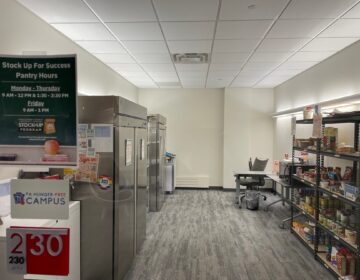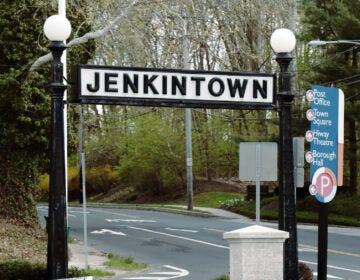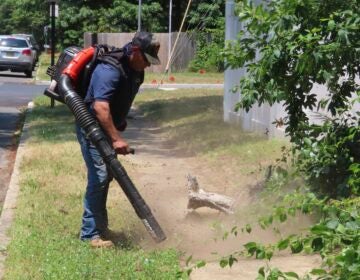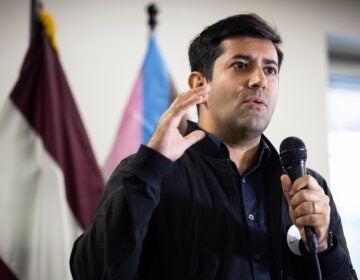Upper Providence residents are pushing back against a massive, 1,200-unit development on Parkhouse property
Some residents fear the project's scope will tarnish the neighborhood’s rural character, threaten the environment and exacerbate a growing stormwater issue.
Listen 1:52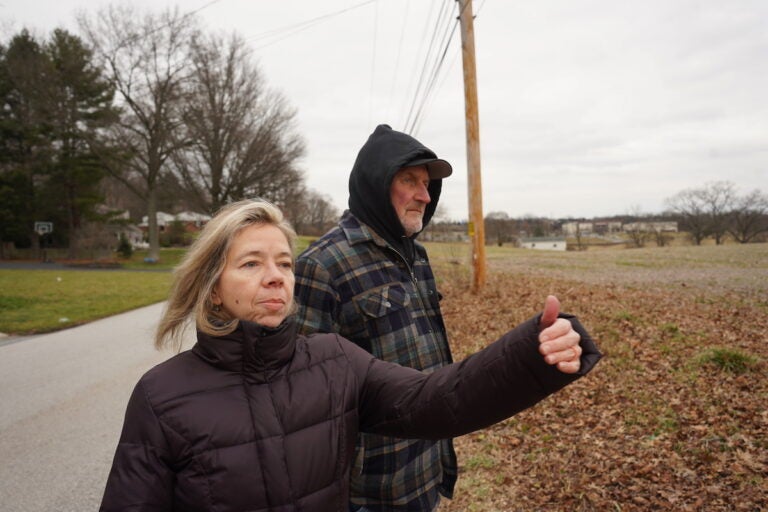
Susan Denby, 61, and Bill Felton, 70, say the planned 1,200-unit development conflicts with the rural character of Upper Providence. (Kenny Cooper/WHYY)
From Delco to Chesco and Montco to Bucks, what about life in Philly’s suburbs do you want WHYY News to cover? Let us know!
Upper Providence Township residents and a developer, Royersford Holdings LLC, are at odds over plans to construct a massive housing project on 176 acres of one of the largest remaining tracts of open space in Montgomery County.
Township officials scheduled what is likely to be a contested conditional use hearing on the project for March 12.
“The vision of having sustainability as part of Pennsylvania’s growth to me is just so important because we can’t get this land back,” said Susan Denby, an organizer with Save Parkhouse Farm. “Flooding, how the climate is changing and getting more intense — there’s just too much at stake to just keep doing what we’ve always done.”
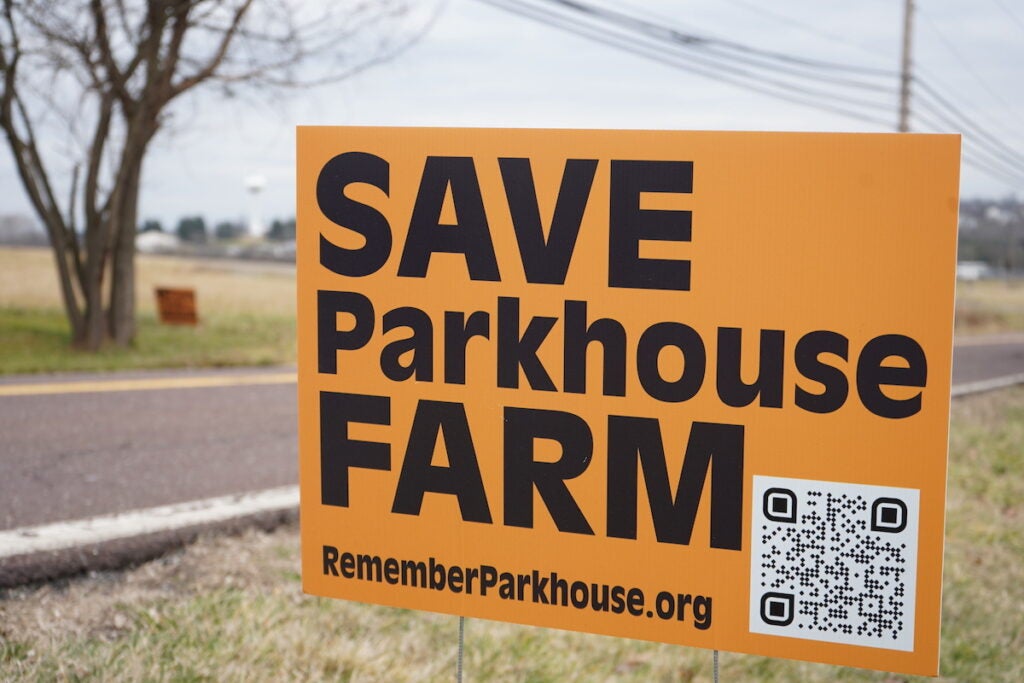
J. Edmund Mullin, a lawyer representing the developer, did not immediately respond to a request to speak with him and his client.
The Parkhouse property, which sits between one of the Schuylkill River’s winding loops, a residential neighborhood and U.S. Route 422, was previously the site of a county-owned and operated geriatric complex. Bedrock Care currently runs the Parkhouse Nursing and Rehabilitation Center, which is an adjacent 40-acre subdivision to the contested grounds.
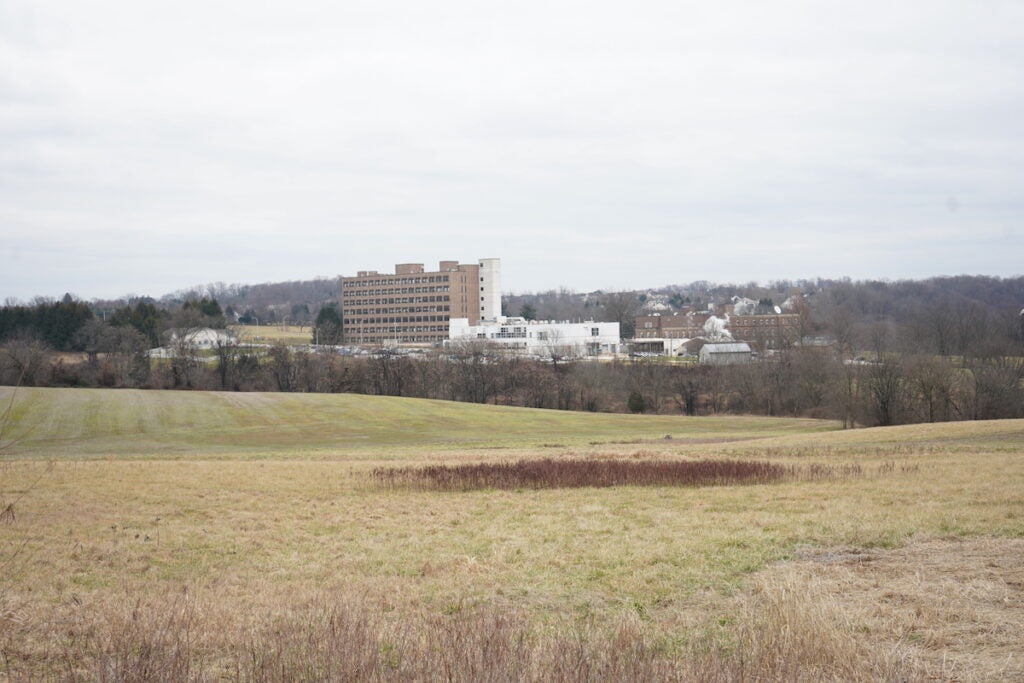
Royersford Holdings wants to build 1,203 units of housing for seniors. This plan would include the construction of apartments, assisted-living units, townhomes and single-family houses.
The company activated its conditional use hearing application Jan. 22 after months of failed negotiations with officials to reduce the number of units.
While the township zoning map categorizes the area as “open space,” the label is a holdover from when it was county-owned. According to the township, the zoning type does not apply to privately owned land.
There is an institutional overlay district which allows the construction of nursing homes — which includes “convalescent homes, residential care facilities, personal care homes and assisted living facilities.” Residents are unconvinced that a 1,200-unit development fits the bill.
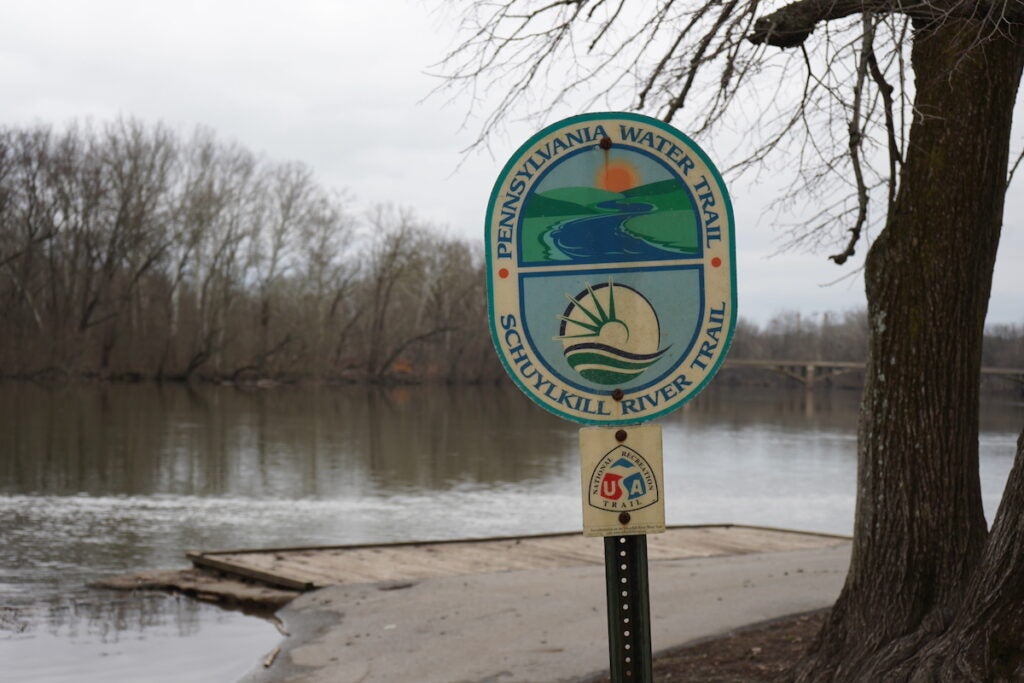
“We feel from what we see on the plans and what we read about the zoning that the proposed plan does not meet the guidelines of the conditional use zones and requirements,” said Bill Felton, another organizer with Parkhouse Friends.
The group believes a project of this scope will tarnish the neighborhood’s rural character, threaten the environment and exacerbate a growing stormwater issue.
“The proposed plan just has too much impervious surfaces, too many units — the roads around here wouldn’t support that kind of traffic,” Felton said.
The township Board of Supervisors retained special counsel at a Feb. 20 public meeting to serve as the hearing officer and speed up the timeline of the conditional use hearing process from months to weeks.
‘Truth stranger than fiction’: Upper Providence official says failed film studio pushed county in debt — and forced Montco to sell Parkhouse
If failed movie studio projects are dominoes, then there was one in Norristown that kicked off the Parkhouse saga.
The county closed a deal to sell Parkhouse to a private operator in 2014 for $41 million. The nursing home business was harsh as the county faced a $1.4 million operating deficit towards the end of its ownership. The sale allowed the county to rid itself of $8.5 million in debt.
And while that may have been a smart move, township officials point the blame at Gov. Josh Shapiro and his fellow county commissioners. According to township solicitor Joseph Bresnan, who did not respond to multiple requests for comment, the truth is hard to believe.
Bresnan dug into the record for older news clippings from the early 2010s and placed them on the big screen during his January presentation.
“This is really the most incredible part of the backstory. The whole reason that we’re here is because the county proposed a movie studio in Norristown, which is truth stranger than fiction,” Bresnan said. “I can’t believe it ever even saw the light of day, but it did, and it failed. Big shocker. It left a hole in the budget for the county, and that’s why they sold Parkhouse.”
The county sunk $25 million into the belly-up project and was on the hook to repay $10 million in federal funds.
Former Montgomery County Commissioner Bruce L. Castor, Jr. said the connection between Parkhouse and the movie studio project are not clear-cut. He said running a geriatric complex was “ungodly expensive.”
“There’s no chance that that there would be any connection between selling Parkhouse and paying off some bond issue for the studio project because the Parkhouse property would be far in excess of the amount of money you would need, because the bond was spread over 30 years, so you only need a little bit every year.”
Castor served as commissioner from 2008 to 2016. He said he’s “positive” he voted against the movie studio project when he sat on the board alongside Jim Matthews and Joe Hoeffel. Shapiro and Leslie Richards replaced the latter in 2012.
Castor said during that period, the three worked together to reduce expenditures accrued from the previous administration.
“We weren’t trying to raise money,” Castor said. “We were trying to reduce expenses generally and we were trying to get out of the geriatric business. One of the reasons we had to reduce expenses generally is the previous administration had borrowed so much money that down the line, our creditworthiness was affected.”
Previous Parkhouse compromises fall through
A conditional use hearing wasn’t an inevitability.
During a heated public meeting in January, the Upper Providence Township Board of Supervisors unanimously turned down a motion to amend the zoning code.
The amendment, which was a compromise of sorts, would have drastically reduced the number of housing units from 1,203 to 679 in exchange to change the overlay zoning.
Denby, 61, said that this many units is still “out of character” for Upper Providence.
“There’s plenty of other places around the area that already have things like that,” Denby said.
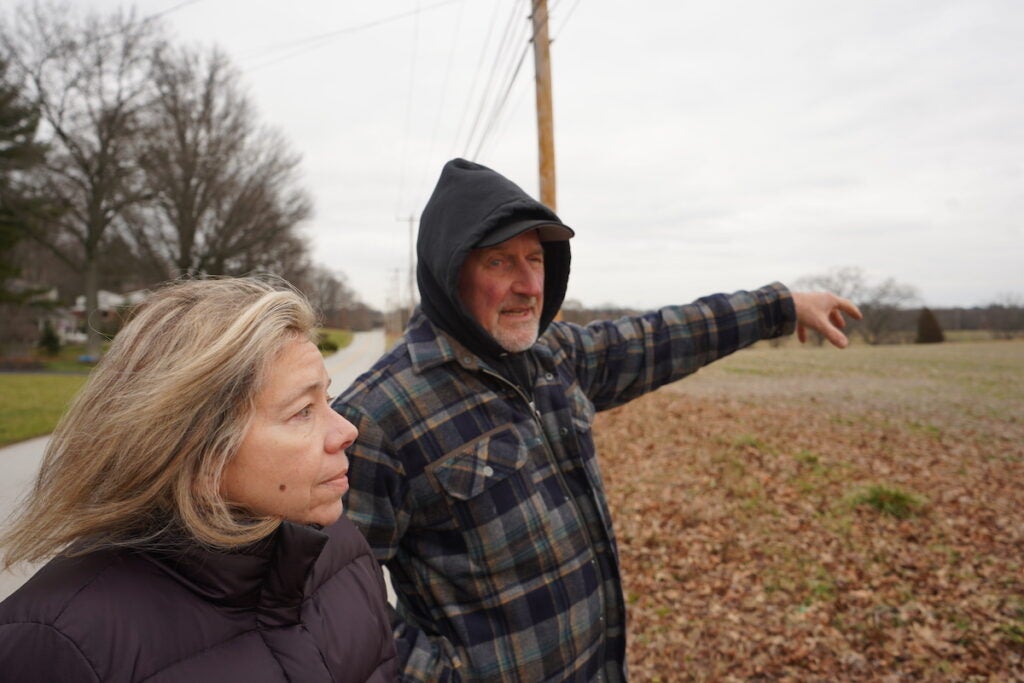
The rejection set up a conditional use hearing — one that the township’s solicitor, who explored the compromise with his team, warned residents at the meeting about its unpredictable nature.
At the meeting, Bresnan said “something has to go there,” it’s just a matter of conducting “damage control.”
“We believe it’s a good resolution to still have 50% of the open space and have the number of units cut in half and have no medical facility,” Bresnan told residents.
The township supervisors, who have largely remained silent on the issue, decided not to go that route. Residents packed the meeting room in opposition to the plan. Felton, 70, believes the proposed compromise did not go far enough to address the density concern.
“It’s all too dense. It’s only 180 acres. Pretty much all of the developed land around the perimeter of this facility has been developed as ‘R1’ — which is one home per acre,” Felton said. “So with that type of density, this would be or would allow for approximately 170 homes plus or minus.”
Township officials, including Bresnan, did not respond to multiple requests for comment.
“Ideally, we’d love to see the whole thing saved as open space. The whole idea of that happening or happening with public dollars is probably pretty slim,” Felton said.
Natural Lands conducted an analysis of the parcel and released a report in April 2023, highlighting 65 acres of Parkhouse land as “highest priority conservation areas” and another 50 acres as “medium priority areas.”
“Natural Lands concludes that due to the property’s large size, water resources, potential habitat value for species of special concern and position within the Schuylkill River Corridor, the Property warrants conservation, as feasible by the Township,” the summary read.
The property’s appraisal estimated Parkhouse’s price tag to be $49 million. Township officials believe the price tag is too hefty.
Regardless of how the Parkhouse property ended up in its current status, Denby is aware that something will end up on the parcel. She said she doesn’t want developers to dictate the direction of how the community grows.
“It is going to be built, but we want to make sure it’s sustainable and responsible versus dense housing,” Denby said.
The March 12 conditional use hearing will take place at 6 p.m. at the Upper Providence Township Administration Building.

Get daily updates from WHYY News!
WHYY is your source for fact-based, in-depth journalism and information. As a nonprofit organization, we rely on financial support from readers like you. Please give today.



